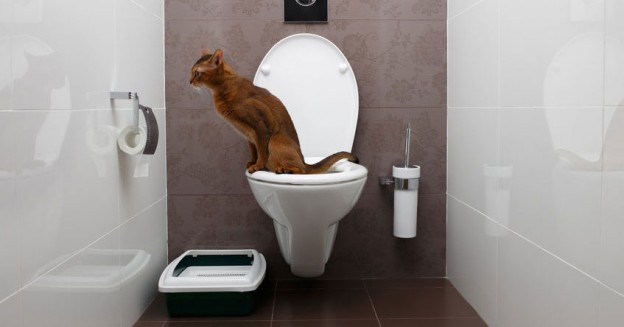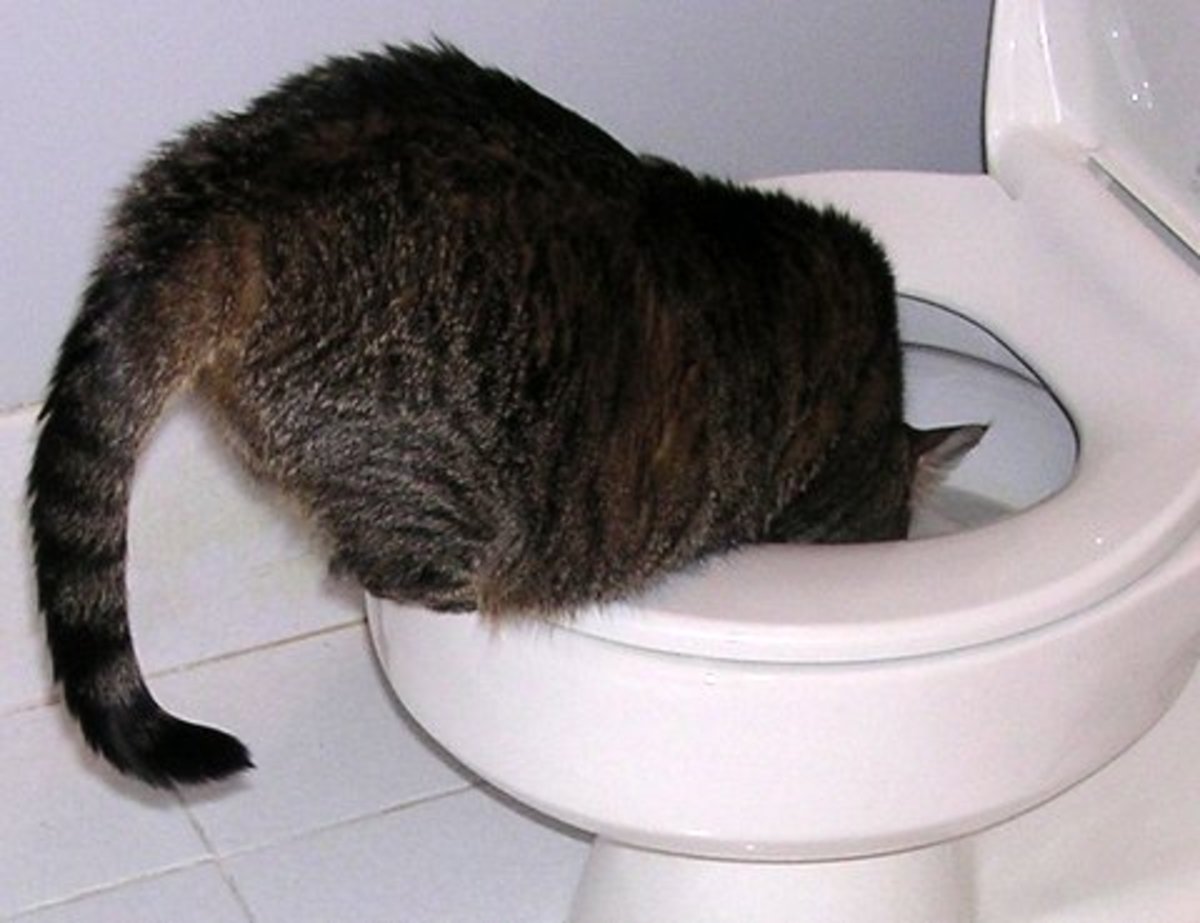We've found the article pertaining to Don’t flush cat feces down the toilet down the page on the net and felt it made perfect sense to share it with you on this site.

Introduction
As cat owners, it's vital to be mindful of just how we deal with our feline pals' waste. While it may seem hassle-free to purge feline poop down the toilet, this method can have harmful effects for both the setting and human health and wellness.
Ecological Impact
Purging cat poop introduces hazardous microorganisms and bloodsuckers into the supply of water, presenting a substantial risk to aquatic communities. These pollutants can adversely affect aquatic life and concession water top quality.
Wellness Risks
Along with ecological issues, flushing cat waste can likewise present wellness dangers to humans. Pet cat feces may consist of Toxoplasma gondii, a bloodsucker that can create toxoplasmosis-- a possibly extreme health problem, especially for pregnant females and individuals with damaged body immune systems.
Alternatives to Flushing
Luckily, there are safer and extra responsible means to take care of cat poop. Take into consideration the following options:
1. Scoop and Dispose in Trash
The most common technique of getting rid of pet cat poop is to scoop it into a naturally degradable bag and toss it in the garbage. Make certain to use a devoted trash scoop and take care of the waste promptly.
2. Use Biodegradable Litter
Opt for biodegradable cat litter made from products such as corn or wheat. These clutters are eco-friendly and can be securely taken care of in the garbage.
3. Bury in the Yard
If you have a yard, consider hiding feline waste in an assigned area far from vegetable gardens and water resources. Make sure to dig deep adequate to avoid contamination of groundwater.
4. Install a Pet Waste Disposal System
Buy an animal waste disposal system particularly designed for feline waste. These systems use enzymes to break down the waste, minimizing odor and environmental influence.
Conclusion
Accountable pet ownership prolongs past offering food and shelter-- it also involves correct waste management. By refraining from flushing feline poop down the commode and opting for alternate disposal approaches, we can decrease our environmental footprint and protect human health and wellness.
Why Can’t I Flush Cat Poop?
It Spreads a Parasite
Cats are frequently infected with a parasite called toxoplasma gondii. The parasite causes an infection called toxoplasmosis. It is usually harmless to cats. The parasite only uses cat poop as a host for its eggs. Otherwise, the cat’s immune system usually keeps the infection at low enough levels to maintain its own health. But it does not stop the develop of eggs. These eggs are tiny and surprisingly tough. They may survive for a year before they begin to grow. But that’s the problem.
Our wastewater system is not designed to deal with toxoplasmosis eggs. Instead, most eggs will flush from your toilet into sewers and wastewater management plants. After the sewage is treated for many other harmful things in it, it is typically released into local rivers, lakes, or oceans. Here, the toxoplasmosis eggs can find new hosts, including starfish, crabs, otters, and many other wildlife. For many, this is a significant risk to their health. Toxoplasmosis can also end up infecting water sources that are important for agriculture, which means our deer, pigs, and sheep can get infected too.
Is There Risk to Humans?
There can be a risk to human life from flushing cat poop down the toilet. If you do so, the parasites from your cat’s poop can end up in shellfish, game animals, or livestock. If this meat is then served raw or undercooked, the people who eat it can get sick.
In fact, according to the CDC, 40 million people in the United States are infected with toxoplasma gondii. They get it from exposure to infected seafood, or from some kind of cat poop contamination, like drinking from a stream that is contaminated or touching anything that has come into contact with cat poop. That includes just cleaning a cat litter box.
Most people who get infected with these parasites will not develop any symptoms. However, for pregnant women or for those with compromised immune systems, the parasite can cause severe health problems.
How to Handle Cat Poop
The best way to handle cat poop is actually to clean the box more often. The eggs that the parasite sheds will not become active until one to five days after the cat poops. That means that if you clean daily, you’re much less likely to come into direct contact with infectious eggs.
That said, always dispose of cat poop in the garbage and not down the toilet. Wash your hands before and after you clean the litter box, and bring the bag of poop right outside to your garbage bins.
https://trenchlesssolutionsusa.com/why-cant-i-flush-cat-poop/

I came across that entry about Can You Flush Cat Poop Down The Toilet? when doing a lookup on the internet. Are you aware of somebody who is serious about the subject? Take a moment to share it. We thank you for reading our article about Can You Flush Cat Poop Down The Toilet?.
Schedule Today
 Jake Lloyd Then & Now!
Jake Lloyd Then & Now! Kel Mitchell Then & Now!
Kel Mitchell Then & Now! Michael C. Maronna Then & Now!
Michael C. Maronna Then & Now! Shane West Then & Now!
Shane West Then & Now! Traci Lords Then & Now!
Traci Lords Then & Now!